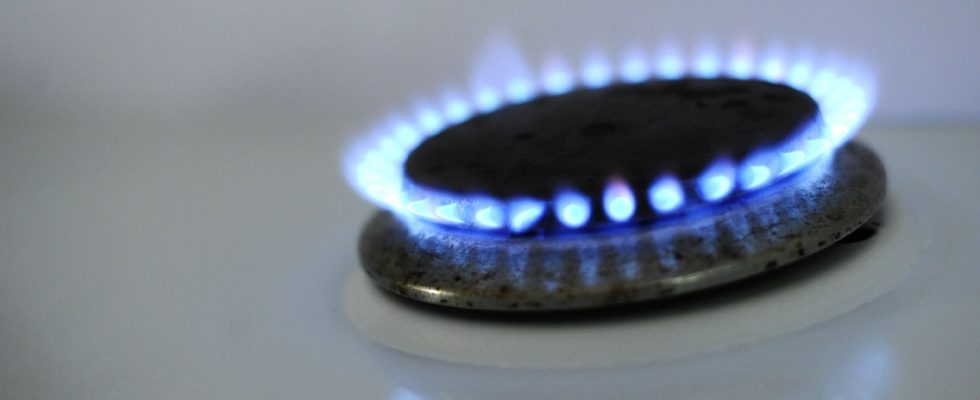End clap for the tariff shield on gas. After almost two years of locked prices, suppliers will again be able to charge the prices they want from June 30. This change comes at the same time as the abolition of regulated gas sales tariffs (TRVG). Nearly 2.5 million households were still affected by this offer as of March 31. Concretely, what will be the consequences for consumers? Should we expect a surge in gas prices? The Express takes stock in four questions.
What will the end of the tariff shield and the end of regulated tariffs change?
Two separate devices will end on Friday, June 30: on the one hand, the tariff shield, on the other hand, that of regulated tariffs (TRVG). The tariff shield applied so far to all gas subscribers. It was set up in 2021 by Prime Minister Jean Castex, to deal with soaring energy prices. It has made it possible to freeze gas prices at their November 2021 level. But at present, “we are witnessing a lull in gas prices”, explains to L’Express Phuc-Vinh Nguyen, researcher in energy policies at the Jacques Delors Institute. They remain much higher than in 2019 but are “below what we saw at the height of the war in Ukraine”, he indicates. The shield was therefore removed, giving providers the freedom to set their own prices.
Regarding the end of regulated tariffs, “it was a measure in connection with the European Commission”, specifies Phuc-Vinh Nguyen. “They are made to disappear under the guise of liberalisation.” Of the 11 million gas subscribers, there remained some 2.5 million residential customers at the TRVGs at the end of March, and around 3 million customers with an offer indexed to this tariff. They will all have to choose a new offer.
What is the procedure for people who still benefit from regulated tariffs?
Fortunately, the end of regulated tariffs will not lead to any gas cuts for the households that benefit from them. Some have already been able to change their offer. For those who were not aware of the deletion, “an alternative will be proposed”, reassures Phuc-Vinh Nguyen. From July 1, the households concerned will automatically switch to a default offer from their historical supplier. Engie has for example developed a relay contract called “Passerelle”, cancellable free of charge, which will give its customers time to study all the possibilities before choosing a new formula.
Will the end of the tariff shield increase gas prices?
This is the great fear of consumers: that suppliers abuse their freedom to offer higher prices than those currently in effect. This situation should – normally – not occur. The end of regulated tariffs will push some 2.5 million households to change their offer, so “there will be very strong competition between the players”, comments for L’Express Andreas Rüdinger, energy transition coordinator at the Institut du Sustainable Development and International Relations (IDDRI). Each will want to offer attractive prices, so for now, “they will probably be a little lower than the blocked rates”, he adds.
It remains to be seen what will happen this winter. Unlike electricity, gas is an entirely imported resource. France is therefore dependent on international events, and above all on demand from China, which may compete with that of Europe. “The forecasts for this winter are quite optimistic, but if there were to be very low temperatures, or a total cut off of Russian gas, we could expect a rise in prices and consequences for consumers”, notes Phuc-Vinh Nguyen.
How to choose your new supplier?
The end of the tariff shield marks the end of gas price stability. Now is the time or never for consumers to compare prices and possibly change supplier. “It is possible to rely on information from the Energy Regulatory Commission (CRE)”, advises Andreas Rüdinger. It will publish a reference price each month, which can serve as an index for households to determine whether the chosen offer is abusive or not. The energy transition coordinator also recommends comparing the different contracts with each other and “keeping the right arbitration in mind”. “They will have to decide between cheaper offers, but which present a greater risk that the tariffs increase, and offers more expensive but more stable”, he summarizes. To be sure to save money, it remains to apply energy sobriety measures.
